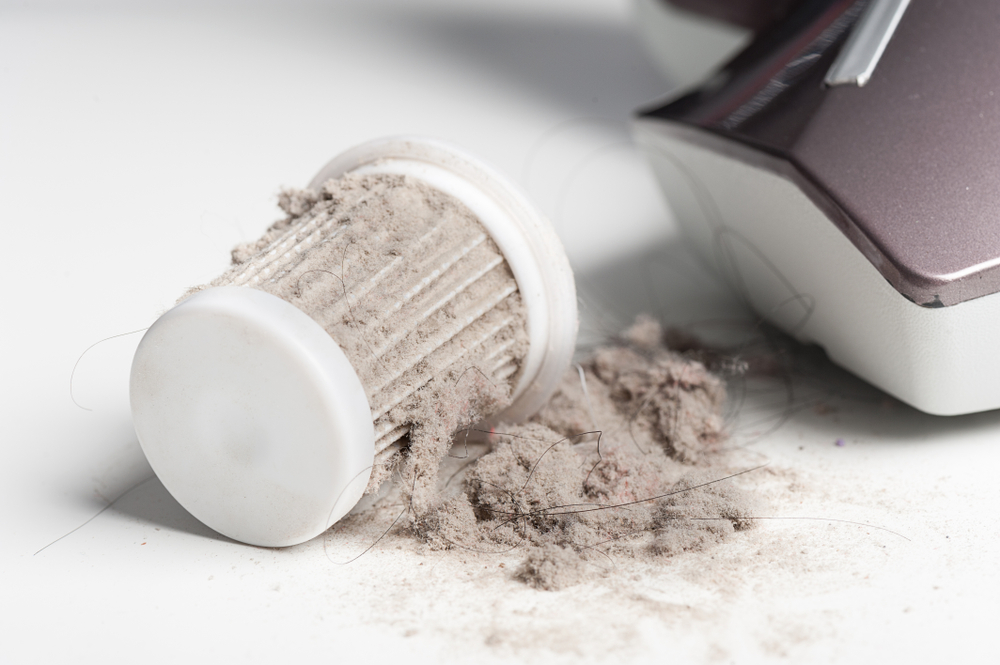When buying a commercial or residential vacuum you may have noticed the term HEPA filter on the box or on the label. And if you are not in the vacuum manufacturing industry, you might have some questions about a HEPA filter and how important it is for your vacuum. In this article, we will go over what a HEPA filter is, how important the filter is overall, and when to have your filter repaired or replaced. If you have any questions about vacuum cleaners for sale, maintenance, or vacuum cleaner repair in the Plymouth County area, please give us a call or contact us to request service for your vacuum cleaner today.

What Is a HEPA Filter?
HEPA is an acronym that stands for high-efficiency particulate air. Simply put, there are a lot of very very small particles that can pollute the air we breath. Dust, dirt, and dander are much more difficult to keep out of the air, our carpets, and our furniture compared to larger messes like spilled food. As you probably know, when you vacuum a motor forces air to be sucked through one section of the vacuum to pick up debris and sent out through the exhaust. The debris is then trapped in the vacuum’s bag or canister. However, the air that comes out the back of the vacuum isn’t necessarily clean. Without a HEPA filter small particles like dander or dirt can fly out of the exhaust of your vacuum cleaner. Not only does this kind of ruin the purpose of cleaning but it can be a nightmare for homes or properties that have residents that have allergies to these particles.
Do All Vacuums Have HEPA Filters?
No, although many modern brands include HEPA filters, not all vacuums come with them. There are even different types of HEPA filters. A true or absolute HEPA filter must reach certain standards in order to be called a HEPA filter. This can be different from other vacuums that are marketed as having HEPA filters. It is important to check what type of filter your vacuum cleaner is using as it can make your cleaning more thorough.
Do I Need a HEPA Filter in My Vacuum Cleaner?
Not necessarily, if you are a homeowner you might not need a HEPA filter in your vacuum, but it is still recommended. As mentioned above, vacuuming without a good filter means polluting the air and blowing dust and dirt all over your home or apartment. A HEPA filter can improve the air quality in your home or apartment while also providing a better clean when vacuuming carpets, hardwood flooring, or upholstered furniture. Some industries require the use of HEPA filters and vacuum cleaners.
Can I Install A HEPA Filter In My Current Vacuum Cleaner?
Potentially, but it isn’t a sure thing. It is usually easier to work with a vacuum designed around a HEPA filter than to simply add one to an existing vacuum. Additionally, a true HEPA vacuum is designed around preventing any air leaks. A HEPA filter can’t do its job if there is a pinhole leak in the vacuum’s hose for example. If the vacuum is not air-tight, dust and dirt can escape the vacuum without having to go through the filter.
Do HEPA Filters Need To Be Replaced?
Some vacuums are designed around replaceable HEPA filters and the vacuum will tell you how often the filter will need to be replaced (usually every 6-12 months). Regardless, most vacuum cleaners will need parts replaced over time because of general wear and tear. A vacuum filter might have been effective when it was first installed but it can get damaged over time.
Vacuum Repair Services in Plymouth
If you need spare parts for your vacuum, need your vacuum repaired, cleaned or replaced, we would be happy to help. Here at Vacuum City in Plymouth Massachusetts we sell high quality vacuum cleaners and help with repairs and replacement parts. For more information please give us a call or contact a member of our team online.